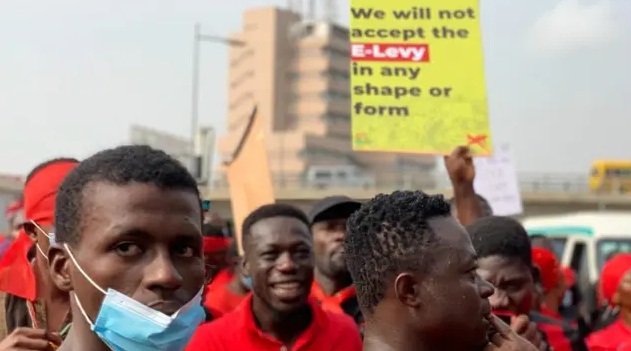Parliament has approved the repeal of the Electronic Transaction Levy (E-Levy), marking a significant policy shift in Ghana’s digital taxation.
The decision follows the passage of the Electronic Transaction Levy (Repeal) Bill, 2025 by Parliament on Wednesday [March 26, 2025.]
The E-Levy, which, was first introduced in March 2022 under the previous New Patriotic Party (NPP) administration, was imposed on electronic transactions, including mobile money and bank transfers. Initially set at 1.5 per cent, the rate was later reduced to one percent in January 2023 due to public backlash.
The Minister of Finance, Dr Cassiel Ato Forson, had announced the 2025 Budget Budget statement to Parliament that the government intended to abolish the levy, along with other tax measures, including the 10 per cent tax on lottery winnings, commonly referred to as the betting tax, and the Emissions tax.
Presenting the 2025 Budget Statement to Parliament on March 11, Dr Forson explained that the move was part of a broader effort to ease the tax burden on citizens while strengthening social protection programmes.
The scrapping of the E-Levy is expected to bring relief to individuals and businesses that had opposed the tax since its introduction.
Critics argued that the levy disproportionately affected low-income earners and stifled financial inclusion by discouraging the use of digital payment platforms.
Protests and public outcry against the levy had been persistent, with many questioning its effectiveness in generating the projected revenue.
The tax was originally designed to widen the tax net by capturing contributions from the informal sector, which accounts for approximately 90 per cent of Ghana’s employment. However, revenue targets were not met, leading to calls for its abolition.
Dr Forson acknowledged the economic challenges facing the country, including currency depreciation, hyperinflation, high taxes, and rising fuel and electricity prices. He stressed that although the E-Levy and other taxes were being repealed, Ghana’s economic recovery would still require sacrifices and fiscal discipline.
“This dialogue is an opportunity to reflect on our economic reality, address pressing challenges, and chart a course towards a more prosperous future for all our citizens,” he noted, referring to the recently held National Economic Dialogue.
President John Dramani Mahama and the National Democratic Congress (NDC) had made the repeal of the E-Levy a key campaign promise ahead of the December 2024 elections. With the bill now passed by Parliament, it awaits President Mahama’s formal assent before taking effect.
During last Friday’s parliamentary proceedings, the motion to repeal the tax was met with unanimous approval, as no dissenting voice was raised against the decision.
The move has been widely welcomed by Ghanaians, particularly those in the informal sector who had borne the brunt of the levy.

